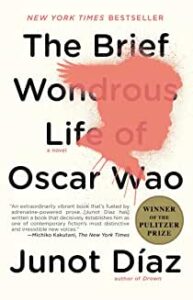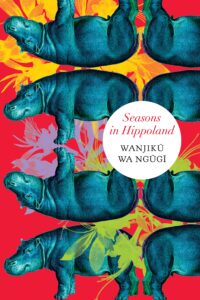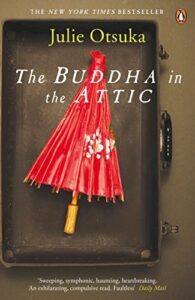Maggie O'Farrell
Fiction 2020 | 305 pages
![]()
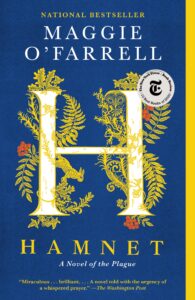
Pardon me if this is too much information, but I am going to share a "hint" for reading this book. There are two timelines, but, IMHO, the author does not distinguish them very well in the beginning chapters. The primary timeline is the story of the twins Hamnet and Judith, 11 years old, their older sister Susanna, their mother, Agnes, and their father. The year is 1593.
The second timeline occurs 15 years earlier and revolves around Agnes meeting and marrying her husband, the Latin tutor and glover's son. Agnes's brother Bartholomew plays a major role, and there are other siblings and extended family members.
O'Farrell never names Agnes's husband, but in the last few pages we become clear that he is in fact William Shakespeare. Why she does not name him, I don't know ... it seems this sense of mystery is part of her style. This ambiguity is confusing and stilted. (If you hear that Hamnet is about Shakespeare writing Hamlet, as I did, take that with a grain of salt. That happens in the last 20 pages. Hamnet is, however, a story about what might have led up to that historic literary event.)
The primary story considers two families, Agnes's, and the family of the man she marries. The relationships are intricate and many. We gain deep insight into Agnes herself, who is the star of this tale, and the twins. We also achieve significant glimpses of her husband and of her powerful and strong brother, Bartholomew. A disappointment is how shallowly the author creates the character of the twins' older sister, Susanna.
Agnes, as well as her twins, Hamnet and Judith, have paranormal powers. Agnes can see the heart of a person, and glimpses of their future, by holding tight to their hand between the thumb and forefinger. Hamnet and Judith are so bonded from their time together sharing a uterus to the present day, that they can be confused, one for the other, and they are capable of assuming each other's emotions, sensibilities, desires, and yes, even their lives.
This is an engrossing and intellectually smart story, with a view of the times, the Black Plague, and the interesting twist of a little paranormal behavior. I recommend this Casting Crew June Book Club read. Thank you for suggesting it, Bev.
June, 2022

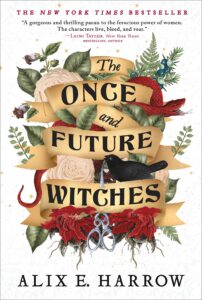
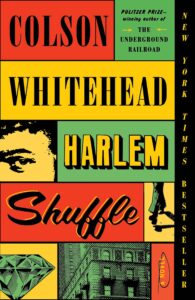

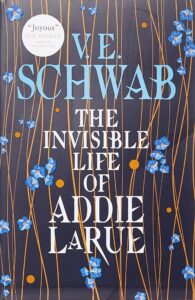
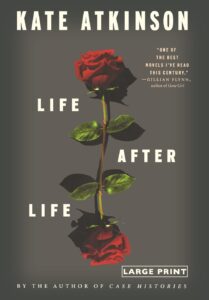 Ursula Todd is born in England on a very snowy evening, February 10, 1910. Except she is strangled by her umbilical cord and dies.
Ursula Todd is born in England on a very snowy evening, February 10, 1910. Except she is strangled by her umbilical cord and dies.